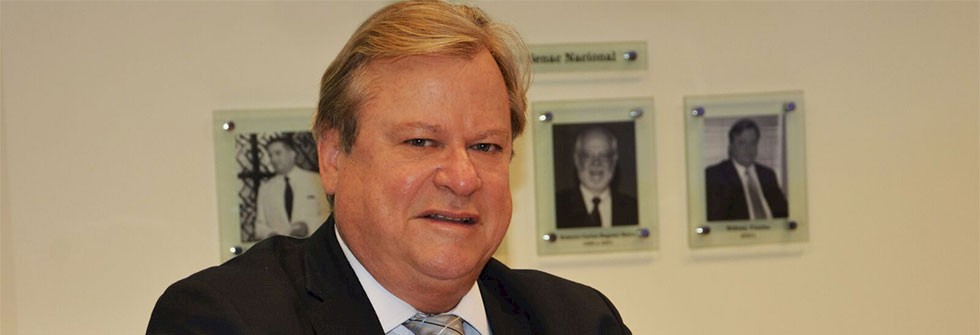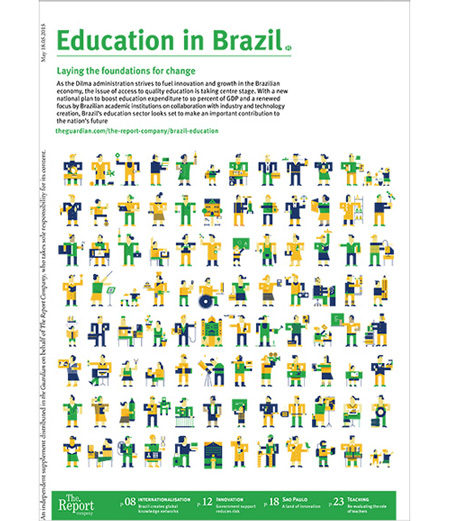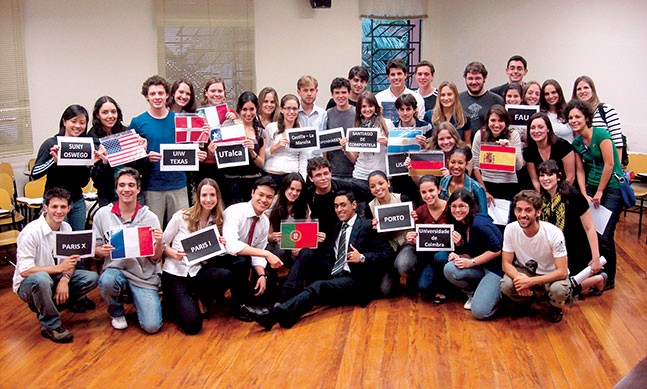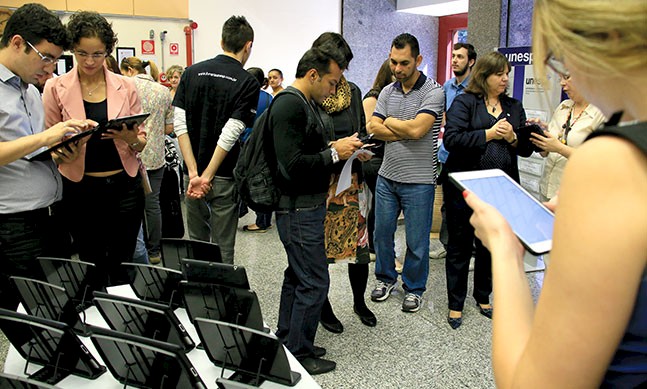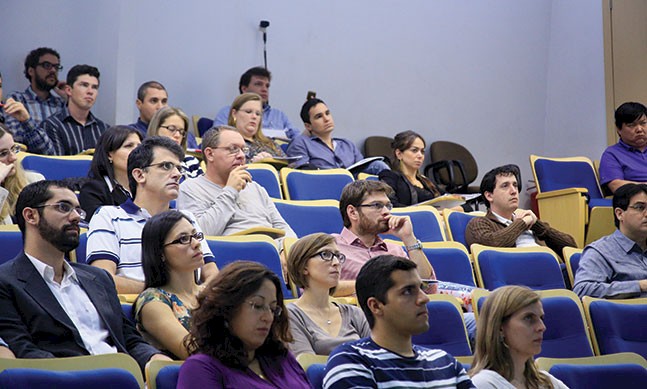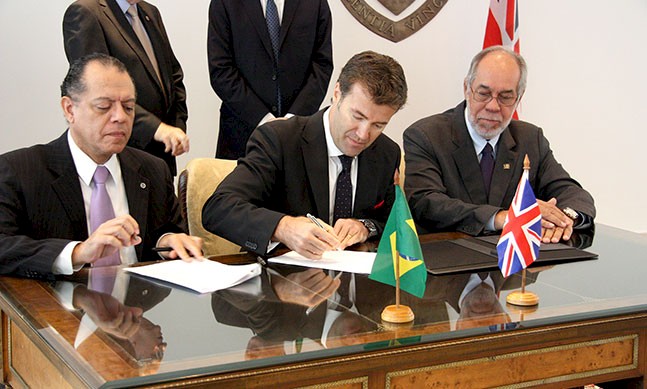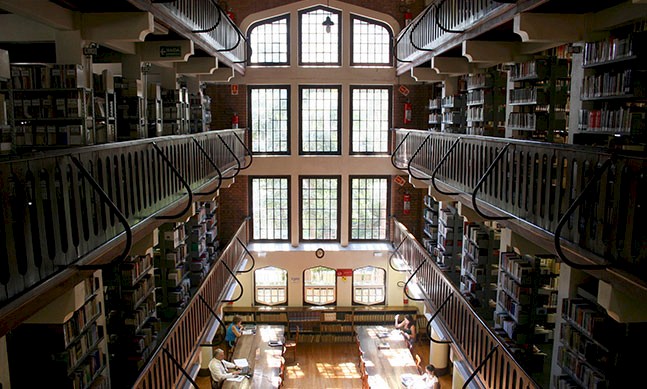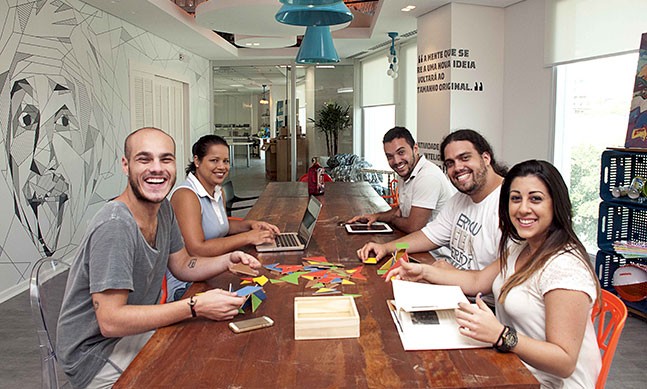More than 1.5 million students pass through Brazil’s National Vocational Training Service, Senac, every year. With a focus on the trade, tourism and service industries, Senac has provided a crucial lifeline to industry, honing students’ basic and advanced skills and providing specific training to meet market demand. Sidney Cunha tells The Report Company that he is confident the changing demands of the country are ready to be met.
The Report Company: What is your take on the current status of Brazil’s education sector?
Sidney Cunha: Since the new constitution in 1988, a lot has happened, but probably even more still remains to be done. After the military dictatorship in Brazil, education became a priority, and was ratified as a basic right of all and a duty of the state. The constitution also included a commitment to eradicate illiteracy, to universalise education and to improve quality, with vocational training as complementary to education. The Brazilian government established a National Education Plan, the goal of which was to allocate a percentage of GDP to finance basic education. This should hit 10 percent by 2024. These were very important commitments for our country.
Creating a framework for the evaluation of education (Saeb) was also fundamental. Brazil started to understand the importance of quality in education, and created a national test to evaluate the quality of the high school education our students were receiving. This is known as ENEM (National High School Assessment). For higher education, we also created Enade (National Student Performance Assessment). Our students started being evaluated by the Programme for International Student Assessment (PISA). A third landmark was the creation of a national fund to finance basic education and to increase teachers’ salaries. In order to improve access to higher education, the government created Fies (Student Loan Programme) and ProUni (University for All Programme).
At the vocational education level, the government created Pronatec (National Programme for Vocational Education and Employment). The number of students in vocational education has since doubled, reaching a section of the population that could not previously afford it. I would say that this was something of a silent revolution.
TRC: Is it possible to ensure the quality and standard of education at the same time as universalisation?
SC: Today we have a mass system of education that includes a whole section of the population that did not previously participate in the educational system. Of course, whatever problems we had before have now been magnified. Repetition and drop-out rates are the two biggest issues we face and even though 96 percent of young people between 6 and 14 years old are in basic education, only 56 percent go on to high school and 17 percent to university. We need to find a way of keeping those kids in the system longer and to ensure quality.
Why are so many of the students that stay in school not learning basic competencies such as reading, writing, basic science and maths? This is why we are in 58th place with PISA. Our target should be to be number one. If South Korea did it, why can't we? They did what they had to do, gave credibility to their teachers, decent salaries, continued training. That is what we do at Senac. We are training 12,000 teachers this year alone, investing in updating schools and training managers. Education management is totally different from teaching and such managers must be competent and open to understanding these problems and education in Brazil as well.
“The number of students in vocational education has doubled, reaching a section of the population that could not afford it. I would say this was something of a silent revolution.”Tweet This
TRC: What role does Senac play in this scenario?
SC: In the five years since we designed a plan to increase the offer of free of charge courses and recently, since Pronatec was created, we have practically doubled the number of students – at least one million students every year are now doing free courses at Senac. This increase is also linked to changes in the job market because vocational education is intrinsically linked to employability, especially in the more specific technical education slot.
The government has been doing great work with its technical schools and has tripled their capacity, but the private sector has been expanding as well. The government established the goal of offering eight million vocational courses, 50 percent of which were contributed by the S System. This is a set of private companies akin to mixed capital companies, which work in cooperation with the government in education and social assistance.
Senac has 620 units throughout Brazil. Senai, a sister S System institution, has another 500 or so. Nevertheless, I think it would be too much to impose the full responsibility for vocational education on the S System. If that is the goal, we will need more resources to do it.
I believe that it would be much more interesting for education if all partners participated. Our joint efforts would be excellent for Brazil. We would have more expertise. The greatest challenge in vocational education today is exchanging good practice and experiences. Seeing where things are done well is of great help. The S System does provide high-quality education, but the country would gain more from a greater exchange of information. Brazil chose a democratic system and whoever is competent enough to do so should be encouraged to take part.
TRC: Do you think that Brazil’s vocational education and training is adequate for the private sector?
SC: The government has been carrying out studies to establish which areas need more investment, and vocational education today is very much in tune with the needs of the productive sector, but it’s important to clarify that those who are most interested in vocational education are the students themselves. If you offer a course and no one applies for it, the market does not want it. Our surveys show that around 60 percent of our students immediately find jobs, which is very high, and our employability level is also very high. Around 90 percent of entrepreneurs say that we have the best courses and that our students are the best professionals they employ.
TRC: What is it about Senac’s training that makes the difference?
SC: Our pedagogical model and our methodology are based on competencies. Our programme combines theory and practice, and the knowledge, values and skills are focused on problem solving so there isn’t much difference between the classroom and the practical side. Today, our teachers are mediators of knowledge who act like guides who allow the students to soar. I believe this is how youths want to be taught today. Our schools are also very well managed; they are always clean and well-equipped, and this draws students, who like going to Senac.
“Today, our teachers are mediators of knowledge who act like guides who allow the students to soar. I believe this is how youths want to be taught today.”Tweet This
TRC: Do you think a unique Brazilian model is being developed in education?
SC: There has been development in some areas. Senac has a large distance education programme for all levels of education, which we remodelled last year and for which we have a national network today. The most important managers of this programme are the national department in Rio de Janeiro and the regional departments of Sao Paulo, Rio Grande do Sul, Santa Catarina and Parana. We centralised course development in these states to gain scale, reduce costs and control the quality of production. Our remodelled network started operations last year, and it is going to grow.
To reach these very different regions in the country has required a great deal of investment. There are many people in the hinterlands who have trouble with regular school access, so we have been trying to expand vocational education to these places and we can do that at a lower cost. We have been studying alternatives through which we can offer the same standard across the country because Senac is always concerned about offering high-quality education. We always want to improve.
Moreover, we have been developing a nationwide programme for integrated management that should be operational by 2017. This means that students can move from one state to the other, but professional profiles will be unified and available in all units. This is what we mean by having nationwide unity of management. The management of schools, of finances, of equipment, as well as the accounting and administration will be all centralised. This is not theory, this is real, and the system is already operating in a couple of states and will be nationwide soon.
Distance education is growing in Brazil. Institutions usually focus on one type of course or another, usually an undergraduate course or a free of charge course, but the challenge for Senac is providing the full set of courses in vocational education: initial education, continuous education, technical education and higher education. In the future, Senac will be an institution dedicated to vocational education for the sectors of commerce, goods, services and tourism that will also have its full range of courses offered online. We can try to offer our students a more flexible mode of education, that is, the possibility of students achieving part of their education through distance courses and part on site.
TRC: How would you assess the relationship between education and the private sector, and how can Brazil increase productivity and attract the right investment?
SC: When we talk about increasing productivity, we are talking about the globalisation of the economy, and because the advances in the services and commerce sector will demand it, we will have to be more productive. There are market niches in which new technologies are arriving and in which management systems need to be improved. There is no doubt that the supply of services will need to increase, and Senac has been following these new processes and trends in several fields, for example in the hotel industry. Our students need to have access to information; they need to know how to use a tablet, for example. We cannot offer an education that is not in sync with what the market needs.
Senac started participating in international competitions and last year our students won three gold medals in commerce and services at WorldSkills Americas. Brazilian vocational education, in international competitions, is overall in fifth place. Taking part in international competitions is very important for us to keep our processes up to date, and Senac has been working with companies and observing the arrival of new processes that help to generate greater productivity.
TRC: What key tools do you equip your students with to help them in their professional lives?
SC: There are many skills that have always been treated as crosscutting, interdisciplinary skills, such as teamwork, ethics, quality, sustainability. What we have done with the latest review of our pedagogical methodology is to insert these issues within the structure of the skills themselves. This model means that we are reproducing, in the classroom, day-to-day situations where issues related to ethics, sustainability, values and so on, emerge. Being skilled means knowing how to do something, but also being ethical, knowing how to work with others, with the community. This must be instilled into students, so it has got to be included in their activities.


